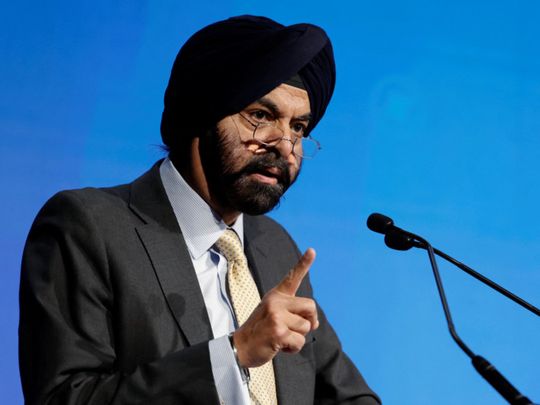Geopolitical tensions resulting from the Middle East conflict are currently the biggest threat to the global economy, according to World Bank President Ajay Banga. However, he also noted that there are other risks at play. In particular, he highlighted the recent rise in the US 10-year treasury yield, which reached 5 percent briefly. This increase in borrowing costs globally could further contribute to an economic slowdown.
Additionally, Banga raised concerns about the possibility of another pandemic. Speaking at the annual Future Investment Initiative in Riyadh, he emphasized the impact of ongoing geopolitical conflicts, such as the recent events in Israel and Gaza, on economic development. He stressed that the cumulative effect of these various risks should not be ignored.
Banga pointed out that risks tend to move around, making it important to be cautious and not focus solely on one risk while disregarding others. He described the current situation as a very dangerous juncture. To support economic development in developing economies, he emphasized the need for private sector investment. However, he acknowledged that political risks in some of these countries act as barriers.
Highlighting the scale of investment required, Banga stated that one trillion dollars is needed solely for renewable energy in emerging markets. He stressed the limited resources available in government coffers and multilateral development banks and emphasized the need to involve the private sector with their capital. According to Banga, this presents the biggest task ahead.
As the world grapples with these multiple risks and challenges, it is essential to address geopolitical tensions, consider the impact of rising borrowing costs, and prepare for potential future pandemics. By involving the private sector and investing in renewable energy, steps can be taken to mitigate these risks and support economic development in emerging markets.

I have over 10 years of experience in the field of cryptocurrency and blockchain technology. I have attended numerous conferences and events around the world, and my work has been featured in major publications such as CoinDesk, Bitcoin Magazine, and Yahoo Finance.

